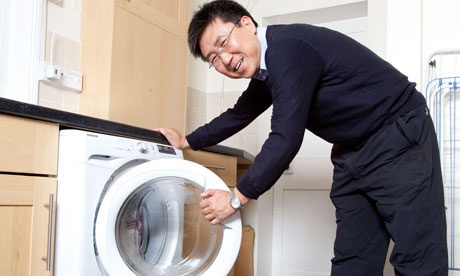In a Financial Times article by David Pilling, unorthodox Cambridge economist Ha-Joon Chang, something of a lone wolf in the dismal science, argues against his discipline’s prevailing ways of conducting business and also explains his contention that washing machines were more revolutionary than the Internet. Two excerpts.
1.
“‘The predominant view in the profession is that there’s one particular way of doing economics. It’s basically to set up some mathematical model, the more complicated the better,’ he says, advocating instead what he calls a multidisciplinary approach. ‘In a biology department, you have people doing all sorts of different things. So some do DNA analysis, others do anatomy, some people go and sit with gorillas in the forests of Burundi, and others do experiments with rats. But they are called biologists because biologists recognise that living organisms are complex things and you cannot understand them only at one level. So why can’t economists become like that? Yes, you do need people crunching numbers, but you also need people going to factories and doing surveys, you need people watching political changes to see what’s going on.'”
2.
“What’s all this about the washing machine and the internet?
‘I was not trying to dismiss the importance of the internet revolution but I think its importance has been exaggerated partly because people who write about these things are usually middle-aged men who have never used a washing machine,’ he replies. ‘It’s human nature to think that the changes you are living through are the most momentous, but you need to put these things into perspective. I brought up the washing machine to highlight the fact that even the humblest thing can have huge consequences. The washing machine, piped gas, running water and all these mundane household technologies enabled women to enter the labour market, which then meant that they had fewer children, had them later, invested more in each of them, especially female children. That changed their bargaining positions within the household and in wider society, giving women votes and endless changes. It has transformed the way we live.'”
Tags: David Pilling, Ha-Joon Chang

